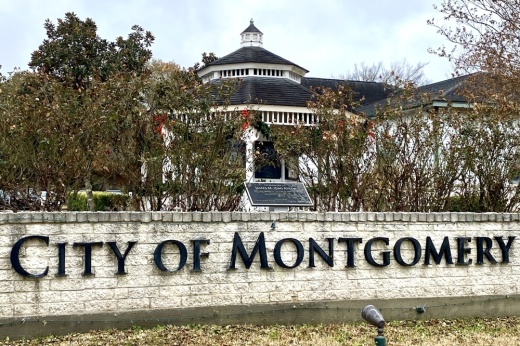Conroe
The city of Conroe's total population increased by approximately 13,000 from 2016 to 2021. Roughly only 1,000 of those new residents identified as white reducing the white population from 84.2% to 71.7%.
Out of the remaining six categories—Black or African American, Asian, American Indian or Alaska Native, Native Hawaiian or other Pacific Islanders, and Hispanic or Latino—the Hispanic population is the only other people group that saw a decrease. The Hispanic population decreased by 2.2 percentage points.
Hispanic or Latino is not a race; however, the percentages of the other races do not include Hispanic or Latino residents.
The mixed race population saw the biggest numerical increase in Conroe jumping from 951 residents to 6,322.
Montgomery
The city of Montgomery's total population doubled in size in the last five years, but trends in the demographic makeup of the city varied from 2016-21.
The white population increased from 81.9% to 93.6% leaving the remaining 6.4% to be split among other races.
The African American or Black population decreased dramatically from 11.2% to 2.7%. The American Indian, Native Hawaiian and Asian populations as of 2021 were equal to or lesser than 1%.
Willis
According to Census data, the city of Willis showed nearly equal parts in increases and decreases among the cities population.
From 2016-21, data shows the white population increased from 61.7% to 68%. The Hispanic or Latino population also saw a 14% increase to make up slightly more than half of the population at 50.7%.
Citizens that identify with more than two race also grew from 9.5% to 16.6%. The Asian population also increased from zero to 1.0%.
Montgomery, Willis ISD boundaries
The populations within Willis and Montgomery ISD boundaries saw varied trends in diversity. From 2016-21, both school districts saw an increase in residents who identified with two races or more. Montgomery ISD jumped from 1.5% to 3.7%. Willis ISD jumped from 3.2% to 10.8%.
The districts also saw the same trend between the Asian and Hispanic populations. MISD added 192 residents identifying as Asian and 1,211 Hispanic or Latino residents. Within district boundaries, WISD added 151 Asian residents and 3,061 Hispanic or Latino residents.
However, MISD's white population remained stagnant at 90.8% while Willis' white population saw a 6% decrease.





